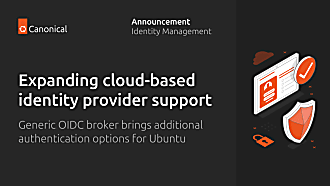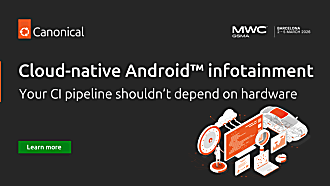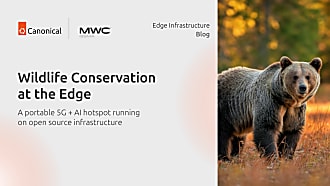Canonical
on 1 August 2013
Last week, we attended OSCON in Portland, Oregon and had a jam-packed event! We presented seven sessions throughout the week, including Community Management Training, Service Orchestration In The Cloud With Juju, Ubuntu Phone and Tablet – Intro to Design and Development, Burnout and Bickering: a Community Manager’s Guide to Conflict, Hacking Embedded Linux: The Caffeinated ARM Course and Arduino Hacking 101: Importing the Universe.
One of the major highlights was Mark Shuttleworth’s keynote on Redefining What’s Possible On Mobile and Cloud. Mark discussed how, with open source, we’re able to redefine what’s possible in personal computing and how the device in your pocket (your phone) will, in the future, be your desktop device (your PC). It’s all about cloud-enabled convergence – bringing all computing experiences to one device. As such, the device itself will stretch what’s possible in your hand to a class of computing that would’ve traditionally been relegated to personal computers. Ultimately, we want to put enough RAM, GPU, etc. on this next-generation phone to drive a full desktop experience and its what we’re striving to do with our Indiegogo crowdfunding campaign for the new Ubuntu Edge phone.
Mark also explained that this initiative will send a profound signal to the industry at large too, to essentially crowdsource a movement for real innovation that matters – as we’ve done with open source now for years. We haven’t even scratched the surface in terms of imagining what’s possible if we’re able to create a completely open device that is uniquely accessible and transferable via the cloud, and can do everything a laptop can do.
Be sure to check out the 20-minute video of Mark’s keynote.
At OSCON this year, we also announced our new Charm browser and GUI experience for our Juju orchestration tool, making it even faster and simpler to use. While this announcement was dwarfed a bit (okay, a lot) by the Ubuntu Edge news, we still saw a lot of interest around this new Juju experience, both at our expo stand and in ongoing discussions. But, as a whole, I think it’s safe to say that the atmosphere at this year’s show was fantastic. Especially compared to years past, it was clear that Juju and the wider Ubuntu cloud story was more prominent and recognised. We can’t wait to see what develops and look forward to another successful OSCON event in 2014!



